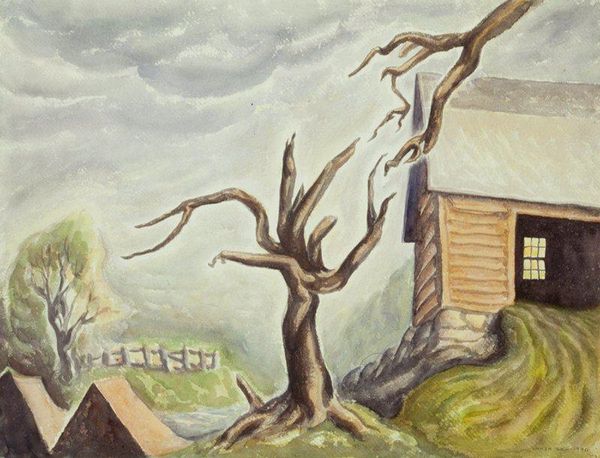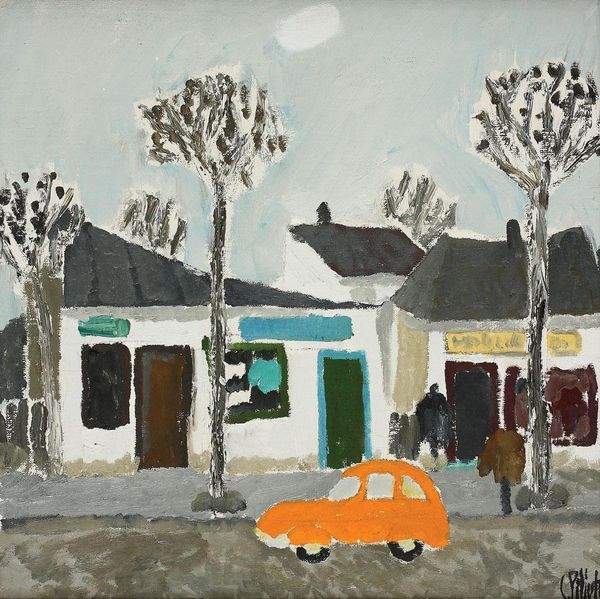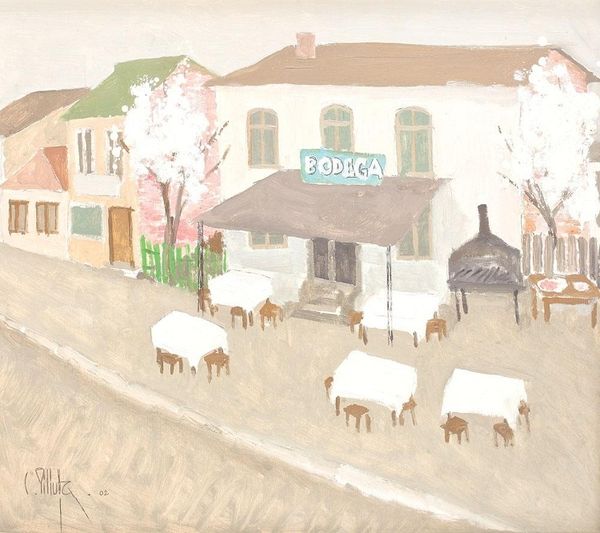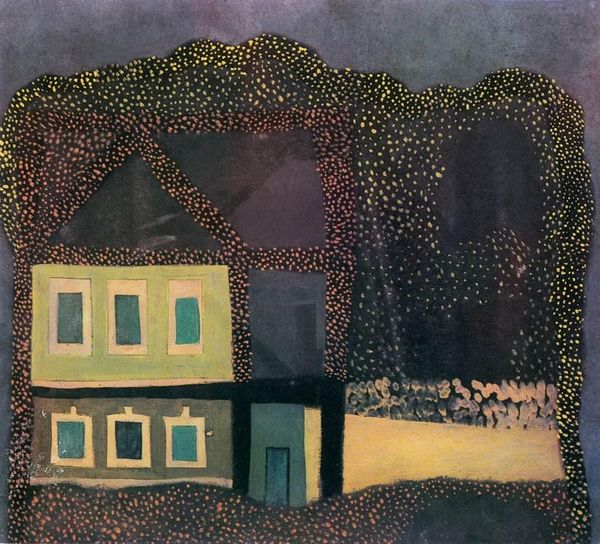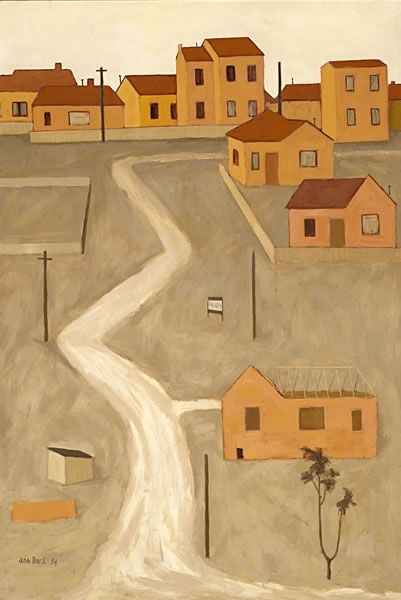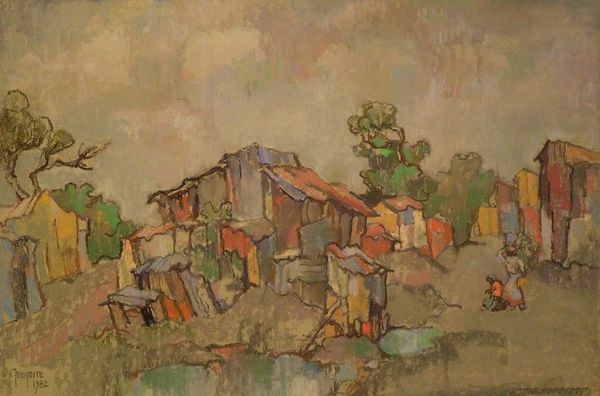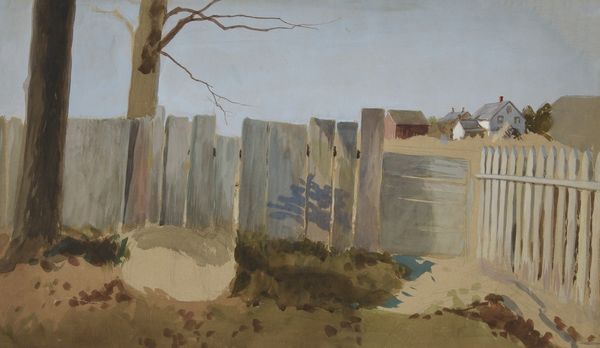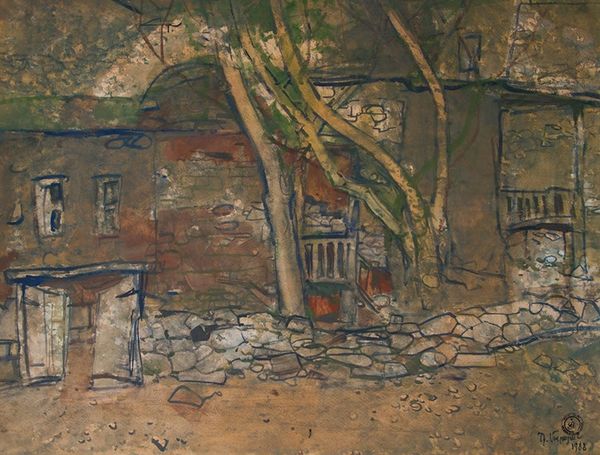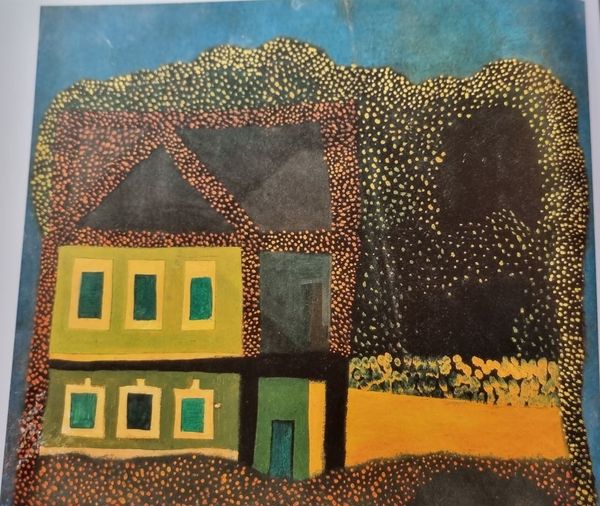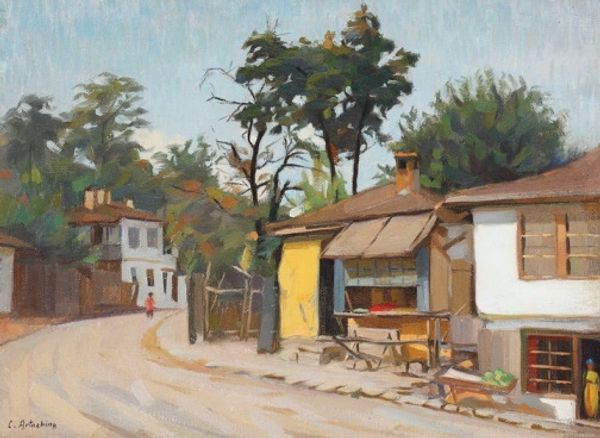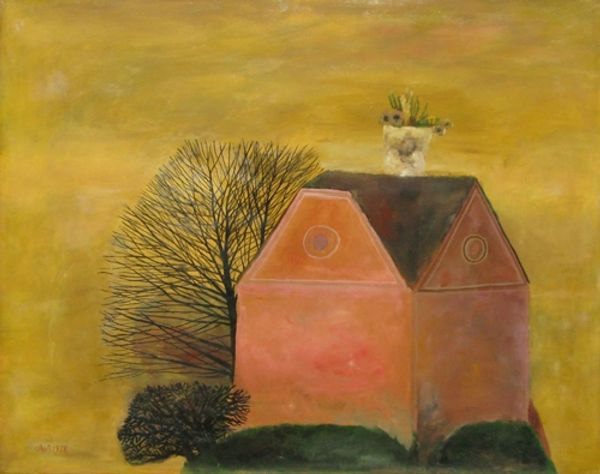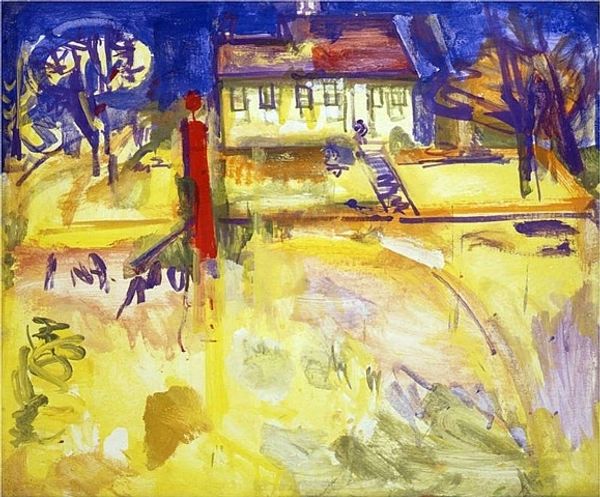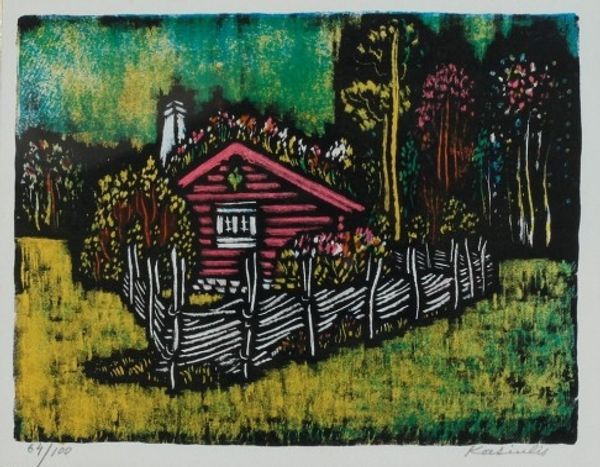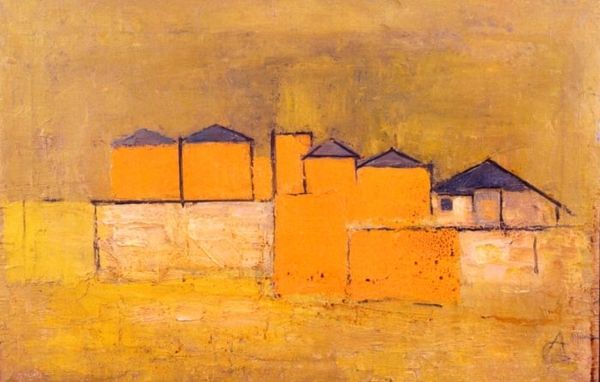
painting, oil-paint
#
painting
#
oil-paint
#
landscape
#
figuration
#
folk-art
#
realism
Copyright: Constantin Piliuta,Fair Use
Curator: Constantin Piliuta's painting, aptly titled "Winter in the Village", presents a seemingly simple scene, rendered with oil paint. What are your immediate impressions? Editor: A landscape stripped down to its essence. I see endurance here— the way the horse and cart persevere through the frozen stillness. There's a poignant isolation, too. Curator: Indeed, that's a crucial element. Piliuta painted extensively across Romania, chronicling a disappearing world of rural labor, specifically in the 20th century. The horse, in this context, becomes a symbol. Editor: The horse appears as an almost totemic figure. Notice its strong posture and prominent place on the canvas – it represents not just labor but continuity. Are we seeing the fading traces of a tradition under pressure? Curator: Absolutely. Folk art traditions were under enormous strain throughout the 20th century, facing forced collectivization, mechanization, and displacement through urbanization. Piliuta captures a way of life teetering on the edge, so there's an element of witnessing trauma as progress steamrolls everything in its path. Editor: You are right to talk about trauma – the leafless trees reaching up and out evoke bare bones, with almost oppressive silence, that signals struggle and survival in harsh circumstances. What is being carried away, or delivered in that cart? Food or raw material that sustains life, and is there even something of value, maybe symbolic? Curator: Perhaps a suggestion that resources are meager in the season. I see a meditation on collective identity too—the buildings resemble many places, suggesting universality amidst particular cultural changes. I wonder about the absence of human figures within this communal space? Editor: Absence can also function as presence; their non-appearance implies the effort it takes simply to survive. The viewer stands outside of warmth or shelter—an observer aware they will eventually enter one structure, and disappear completely, to then return to where it comes from – into oblivion and absence again. Curator: It reminds me that witnessing these scenes asks something of us, it compels reflection on whose stories get told, and who is rendered absent from those accounts. Editor: Piliuta offers not a sentimental depiction but a complex record. It reveals to us the weight carried through symbols and a landscape now layered with different stories and forgotten meanings.
Comments
No comments
Be the first to comment and join the conversation on the ultimate creative platform.
